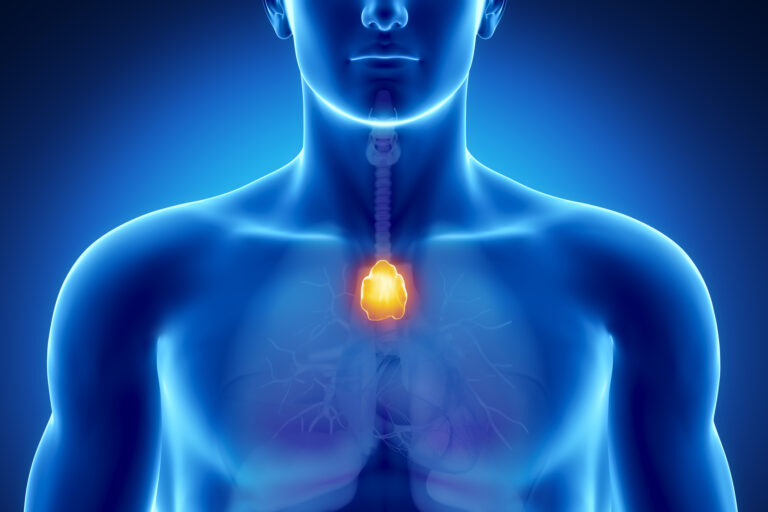
Myasthenia gravis (MG) is a rare and potentially lethal neuromuscular disorder in which the skeletal muscles weaken as time passes. It is a long-term autoimmune condition caused by deterioration in the regular contact between nerves and muscles. MG affects most body parts but usually spreads from the eyes and face to other areas.
Get Financial Assistance for Vyvgart
Although myasthenia gravis doesn’t significantly impact life expectancy for most persons, patients affected are more likely to have decreased physical activity and reduced quality of life. Research reveals that about 20 out of every 100,000 persons are affected by MG.
However, the good news is that there are treatments that can help keep the symptoms under control. Vyvgart is one of the highly recommended MG therapy options changing the landscape.
What Is Vyvgart?
Vyvgart (efgartigimod) is a prescription medicine used to treat adults who are diagnosed with generalized myasthenia gravis (gMG) and are anti-acetylcholine receptor (AChR) antibody positive.
Interestingly, it is the first FDA-approved treatment that uses a fragment-crystallized IgG antibody to treat adults who are anti-AChR antibody-positive. The U.S. Food and Drug Administration (FDA) approved Vyvgart for the treatment of gMG in December 2021. It contains efgartigimod alfa and can be used independently or with other medications.
A major clinical study involving a little over a hundred patients with gMG who are AChR antibody positive revealed that Vyvgart was effective at improving symptoms of the disease. This study analyzed the efficacy of the medication using a Myasthenia Gravis‑specific Activities of Daily Living (MG‑ADL) scale, which measures the impact of the disease on the patient’s daily activities. The scale involves numbers, and higher numbers indicate more severe symptoms.
In this study, after the first treatment cycle, about 68% of the patients treated with Vyvgart had considerable improvement compared to about 30% of the patients treated with a placebo. More patients receiving Vyvgart also indicated response on a measurement of muscle weakness.
How Does Vyvgart Work?
Our nerves regulate the action of our muscles. Acetylcholine is discharged from a nerve when a muscle contracts and attaches to acetylcholine receptors (AChRs) on the muscle cells.
In patients with gMG, the immune system produces autoantibodies (proteins that mistakenly damage parts of a person’s body) that damage these receptors. As a result of this damage, the muscles cannot contract normally, leading to muscle weakness and complications in movement.
Vyvgart works by attaching to a protein called neonatal Fc receptor (FcRn), which regulates the levels of antibodies in the blood, and inhibits its action. By blocking FcRn, Vyvgart lessens the level of autoantibodies. This, in turn, enhances the muscles’ ability to contract and decreases the symptoms of the disease.
Treatment
Due to the nature of how Vyvgart works, it is particularly recommended for patients with generalized myasthenia gravis who are anti-AChR antibody positive. Treating gMG can help lessen symptoms so that patients can live an essentially regular life.
Nonetheless, some people require continuous treatment, and periodic emergency treatment in a hospital may be crucial if the condition unexpectedly worsens.
Although most patients with generalized myasthenia gravis are AChR positive, it’s advisable to have your doctor determine if you are anti-AChR antibody positive. This would help prevent any complications from a misdiagnosis or mistreatment.
Vyvgart is available as an infusion (drip) into a vein. After seeing how the patient responds to the treatment, healthcare providers will decide how many cycles to give.
Patients can be treated for myasthenia gravis (MG) with drugs, surgery, and other therapies. It’s advisable that you discuss your concerns and health history with your doctors, as the best treatment option for you depends on the severity of the illness, the muscles affected, age, and the existence of other medical conditions.
Vyvgart is not available as an over-the-counter medication, and a level of expertise is required to handle it. Its administration should be done by medical personnel with experience in managing neuromuscular disorder patients.
The treatment of myasthenia gravis also incorporates self-care, which includes getting plenty of sleep, pacing your level of activity, eating healthy foods, exercising, and managing stress.
Speak to a Specialist
About Copay AssistanceHow to Take Vyvgart
- Vyvgart vials should be administered via intravenous infusion by a healthcare specialist.
- Visually examine Vyvgart diluted solution for impurities or discoloration before administration.
- Avoid use if it is discolored or if contaminants are detected.
- Infuse 125 ml of diluted solution intravenously over one hour via a 0.2-micron in-line filter.
- After administering Vyvgart, use 0.9% Sodium Chloride Injection, USP to flush the entire line.
Patients should be monitored during administration and for 1 hour afterward for clinical signs and symptoms of hypersensitivity reactions. If a hypersensitivity reaction occurs during administration, you should discontinue the administration of Vyvgart and initiate proper supportive measures.
Other medications should not be injected into infusion side ports or combined with Vyvgart.
Dosing
The dose of Vyvgart is dependent on the patient’s weight. The drug is given once a week over 4-week cycles.
Your healthcare provider will decide on how many cycles to give after considering how you react to the treatment.
Generally, 10 mg/kg is the recommended dosage to be administered as an intravenous infusion. If the patient weighs over 120 kg, the recommended dose of Vyvgart is 1,200 mg per infusion.
If you miss a scheduled infusion, administer Vyvgart up to 3 days after the scheduled time. Afterward, return to the original dosing plan until the treatment cycle is finalized.
Overdose
Although there are no detected specific signs and symptoms of overdose with Vyvgart, patients should be monitored for adverse reactions, and appropriate symptomatic and supportive treatment should be initiated. Note that there is no specific antidote for overdose with Vyvgart.
Side Effects
Common side effects may include:
- Urinary tract infection (UTI)
- Headache
- Respiratory tract infection
- Cold symptoms such as stuffy nose, sneezing, and sore throat
Other side effects apart from the aforementioned may occur. Don’t hesitate to reach out or get emergency medical help from your healthcare provider if you notice any signs of an allergic reaction, such as muscle pain, difficulty breathing, and swelling of your face or lips.
Furthermore, contact your doctor at once if you detect signs of infection, such as fever, chills, sore throat, body aches, unusual tiredness, loss of appetite, bruising, or bleeding.
Precautions
Fertility
There is no available data on the effect of Vyvgart on fertility in humans. Animal studies showed no impact of Vyvgart on male and female fertility.
Pregnancy
There is no available data on the use of Vyvgart during pregnancy. However, antibodies containing therapeutic monoclonal antibodies transport across the placenta by binding to the FcRn.
Vyvgart may be conveyed from the mother to the fetus as it is expected to reduce maternal antibody levels, inhibit the transfer of maternal antibodies to the fetus, and reduce passive protection in the newborn. Before administering the medication, your doctor should weigh the risks and benefits and should only consider it if the clinical benefits outweigh the risks.
Breast-feeding
There is no information regarding the presence of Vyvgart in human milk, the effects on the breastfed child, or the effects on milk production. Animal studies on the transfer of Vyvgart into milk have not been conducted, and therefore, excretion into breast milk cannot be excluded. Treatment of lactating women with Vyvgart should only be considered if the clinical benefit outweighs the risks.
Vyvgart Treatment Info
Get Prior AuthorizationDrug Interactions
Although little or no interaction studies have been performed, Vyvgart may decrease the concentrations of compounds that bind to the human neonatal Fc Receptor (FcRn). These include monoclonal antibodies, immunoglobulin products, or antibody derivatives containing the human Fc domain of the IgG subclass.
It is advisable to avoid taking Vyvgart with treatments using the above-mentioned products until a couple of weeks after the last dose of any given treatment cycle of Vyvgart. Patients receiving Vyvgart while on treatment with these products should be closely monitored for the intended efficacy response of those products by their healthcare providers.
For patients who are on Vyvgart treatment therapy, vaccination with live or live-attenuated vaccines is not advisable. This is because Vyvgart causes a reduction in immunoglobulin G (IgG) levels.
All vaccines should be administered according to immunization guidelines at least four weeks before the initiation of a treatment cycle and not until two weeks after the last infusion of a treatment cycle.
Vyvgart Storage Conditions
Due to the lack of preservatives in Vyvgart, the administration should be done immediately after dilution, and the intake should be finalized within 4 hours.
In cases where the instantaneous use of the drug is not possible, the diluted solution should be stored refrigerated at 2°C to 8°C (36°F to 46°F) for up to 8 hours.
Protect the medication from light and do not freeze. Permit the diluted drug to reach room temperature before administration and complete the infusion within 4 hours after removing it from the refrigerator. Other than via ambient air, do not expose the diluted drug to heat.
Vyvgart Cost
The cost for Vyvgart may vary depending on the pharmacy you visit. In most places, the price for Vyvgart solution (400 mg/20 ml) is about $6,275 for a supply of 20 ml.












